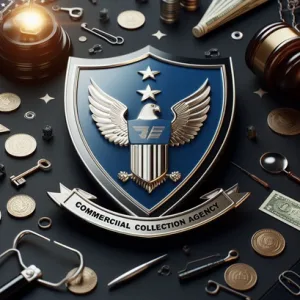
For commercial properties, overdue rent collection can be a challenging aspect of property management, requiring a strategic approach to ensure timely payments while maintaining positive tenant relationships. When rent becomes overdue, property managers typically start with a reminder to the tenant about the missed payment, often through a formal notice. If this initial attempt does not result in payment, subsequent steps may include direct communication to understand the tenant’s situation and negotiate a payment plan if necessary.
Involving a collection agency can help you to recover unpaid commercial debt without damaging tenant relations. Collection agencies specialize in recovering overdue payments and can be effective and their low cost services can help you avoid going all the want to the courts .
Commercial properties that often experience unpaid rents include:
- Retail Spaces: These are designed for businesses that sell goods or services directly to the public, such as shops, restaurants, cafes, and boutiques. They are often located in high foot traffic areas like shopping centers, malls, and downtown streets to attract customers.
- Office Buildings: These spaces are used by businesses for their administrative, professional, or creative activities. They range from small office suites to large buildings housing multiple companies. Office spaces can also be categorized into Class A, B, or C, reflecting their quality, amenities, and location.
- Industrial Properties: This category includes warehouses, factories, and distribution centers used for manufacturing, storage, and distribution of goods. They’re typically located outside of urban centers, with easy access to transportation routes.
- Mixed-Use Buildings: These properties combine residential, commercial, and sometimes industrial spaces within a single building or complex. They might include retail shops on the ground floor with apartments or offices above.
- Medical Centers: Buildings or complexes designed specifically for healthcare services, including clinics, dental offices, and laboratories. These are often located near hospitals or in community centers for easy access.
- Special Purpose Spaces: This encompasses a broad category of commercial properties designed for specific activities, such as theaters, gyms, schools, and churches.
- Co-working Spaces: These are modern office environments that offer flexible working spaces for individuals or small companies. They provide shared workspaces, private offices, and communal facilities on a subscription basis.
- Hospitality Properties: These include hotels, motels, and other short-term lodging facilities that cater to travelers and tourists.
Need a Collection Agency? Contact us: |
|
|
|
|
Unique Features of CA-USA
- Free Bankruptcy screening.
- Free Credit Bureau reporting in contingency collections.
- Free Change of Address check and Litigious defaulter check.
- Accounts can be further recommended to one of our national network of lawyers for filing a Legal suit to recover money.
- We can perform debt collections in both English and Spanish.
- Apart from B2C collections, we also have a dedicated Commercial Division for B2B collections.
- Serving Nationwide ( Licensed in all 50 states and Puerto Rico).
- We have consistently passed SSAE 18 SOC 1 Type 2 data security compliance.


